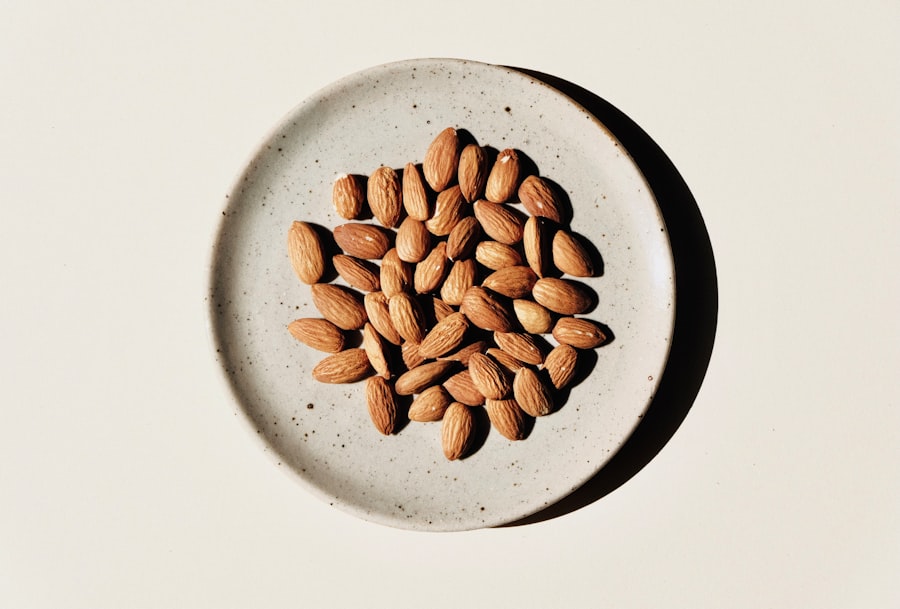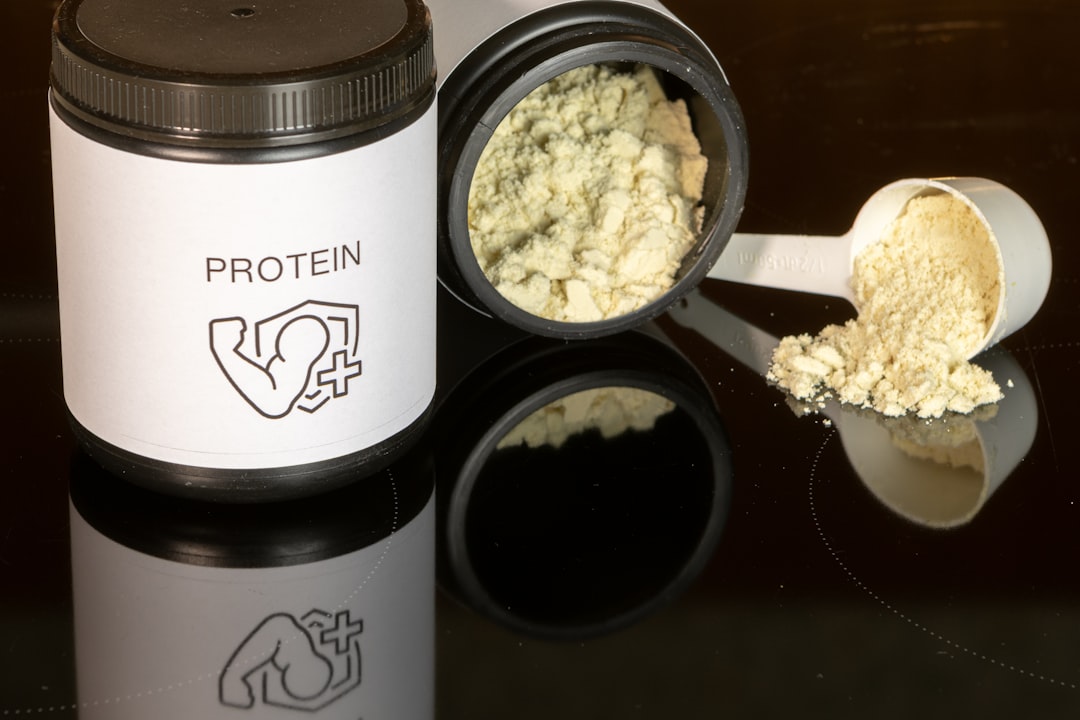Cognitive function encompasses a range of mental processes, including memory, attention, problem-solving, and decision-making. These functions are essential for daily life, influencing how you learn, interact with others, and navigate the world around you. As you age or face various life challenges, maintaining optimal cognitive function becomes increasingly important.
One of the key players in supporting these mental processes is protein, a macronutrient that plays a vital role in the structure and function of your brain. Protein is made up of amino acids, which are the building blocks of your body. These amino acids are crucial for the synthesis of neurotransmitters—chemicals that transmit signals in the brain.
When you consume protein, your body breaks it down into these amino acids, which then contribute to various cognitive functions. Understanding the relationship between cognitive function and protein can help you make informed dietary choices that support your mental health and overall well-being.
Key Takeaways
- Understanding Cognitive Function and Protein:
- Protein plays a crucial role in cognitive function and brain health.
- Amino acids, the building blocks of protein, are essential for brain function.
- The Importance of High PDCAAS Protein for Cognitive Function:
- Protein Digestibility-Corrected Amino Acid Score (PDCAAS) is important for cognitive function.
- High PDCAAS protein provides the necessary amino acids for optimal brain health.
- The Role of Amino Acids in Cognitive Function:
- Amino acids are vital for neurotransmitter production and communication in the brain.
- They also support the formation of new brain cells and neural pathways.
- How High PDCAAS Protein Supports Brain Health:
- High PDCAAS protein supports brain health by providing essential nutrients for cognitive function.
- It helps maintain neurotransmitter balance and supports overall brain function.
- The Impact of High PDCAAS Protein on Memory and Learning:
- High PDCAAS protein can enhance memory and learning abilities.
- It supports cognitive processes and may improve overall brain function.
- Optimizing Cognitive Function through Protein-Rich Diet:
- A protein-rich diet can optimize cognitive function and support brain health.
- Including high PDCAAS protein sources in the diet is essential for cognitive optimization.
- High PDCAAS Protein Sources for Cognitive Function:
- Sources of high PDCAAS protein include animal products like meat, dairy, and eggs.
- Plant-based sources like quinoa, soy, and buckwheat also provide high PDCAAS protein.
- Incorporating High PDCAAS Protein into Your Daily Diet:
- Including high PDCAAS protein in meals and snacks can support cognitive function.
- Planning meals with high-quality protein sources is essential for brain health.
- The Connection Between Protein and Mental Clarity:
- Protein consumption is linked to improved mental clarity and focus.
- High PDCAAS protein can support cognitive processes and mental sharpness.
- High PDCAAS Protein and Age-Related Cognitive Decline:
- High PDCAAS protein may help mitigate age-related cognitive decline.
- It supports brain health and may contribute to maintaining cognitive function as we age.
- Tips for Maximizing the Cognitive Benefits of High PDCAAS Protein:
- Pair high PDCAAS protein with other brain-boosting nutrients like omega-3 fatty acids.
- Incorporate a variety of high PDCAAS protein sources into your diet for optimal cognitive benefits.
The Importance of High PDCAAS Protein for Cognitive Function
When discussing protein quality, the Protein Digestibility-Corrected Amino Acid Score (PDCAAS) is a critical measure. This score evaluates the digestibility of protein sources and their amino acid profile, providing insight into how effectively your body can utilize them. High PDCAAS proteins are those that not only contain all essential amino acids but are also easily digestible.
This quality is particularly important for cognitive function, as your brain requires a steady supply of these amino acids to operate optimally. Incorporating high PDCAAS protein into your diet can significantly enhance your cognitive abilities. These proteins ensure that your brain receives the necessary nutrients to produce neurotransmitters effectively.
When your brain is well-nourished, you may experience improved focus, better memory retention, and enhanced problem-solving skills. Thus, prioritizing high PDCAAS protein sources can be a game-changer for anyone looking to boost their cognitive performance.
The Role of Amino Acids in Cognitive Function

Amino acids play a pivotal role in cognitive function by serving as precursors for neurotransmitters. For instance, tryptophan is an amino acid that converts into serotonin, a neurotransmitter that regulates mood and emotional well-being. Similarly, tyrosine is essential for producing dopamine and norepinephrine, neurotransmitters that influence motivation and alertness.
By ensuring you consume adequate amounts of these amino acids through high-quality protein sources, you can support the production of these critical brain chemicals. Moreover, amino acids also contribute to neuroplasticity—the brain’s ability to adapt and reorganize itself in response to new information or experiences. This adaptability is crucial for learning and memory formation.
When you provide your body with high PDCAAS proteins rich in essential amino acids, you create an environment conducive to cognitive growth and resilience. Therefore, understanding the role of amino acids in cognitive function can empower you to make dietary choices that enhance your mental capabilities.
How High PDCAAS Protein Supports Brain Health
| PDCAAS Protein | Brain Health Benefits |
|---|---|
| High PDCAAS Protein | Supports cognitive function |
| Provides essential amino acids | Supports neurotransmitter function |
| Supports brain development | Enhances memory and learning |
High PDCAAS proteins not only provide essential amino acids but also offer other nutrients that support overall brain health. For example, many high-quality protein sources are rich in vitamins and minerals such as B vitamins, iron, and zinc—all of which play significant roles in maintaining cognitive function. B vitamins are particularly important for energy metabolism in the brain, while iron is crucial for oxygen transport to brain cells.
Additionally, high PDCAAS proteins can help reduce inflammation in the body, including the brain. Chronic inflammation has been linked to various cognitive disorders and can impair cognitive function over time. By incorporating high-quality protein sources into your diet, you may help mitigate inflammation and promote a healthier brain environment.
This holistic approach to nutrition can lead to improved cognitive performance and overall mental well-being.
The Impact of High PDCAAS Protein on Memory and Learning
Memory and learning are two critical aspects of cognitive function that can be significantly influenced by your diet. Research suggests that diets rich in high PDCAAS proteins can enhance memory retention and learning capabilities. This effect is largely attributed to the availability of essential amino acids that support neurotransmitter synthesis and promote neuroplasticity.
When you consume high-quality protein sources, you provide your brain with the necessary tools to form new memories and retain information more effectively. For instance, studies have shown that individuals who consume adequate amounts of protein tend to perform better on memory tasks compared to those with lower protein intake. By prioritizing high PDCAAS proteins in your diet, you can create a solid foundation for improved memory and learning outcomes.
Optimizing Cognitive Function through Protein-Rich Diet

To optimize cognitive function, it’s essential to adopt a balanced diet that includes a variety of high-quality protein sources. This approach ensures that you receive all the essential amino acids necessary for optimal brain health. Incorporating protein-rich foods into each meal can help maintain stable energy levels throughout the day, which is crucial for sustained focus and concentration.
In addition to including high PDCAAS proteins in your diet, consider pairing them with other nutrient-dense foods such as fruits, vegetables, whole grains, and healthy fats. This combination will not only enhance your overall nutritional intake but also support cognitive function by providing antioxidants and anti-inflammatory compounds that protect brain health. By taking a holistic approach to your diet, you can maximize the cognitive benefits of high-quality protein.
High PDCAAS Protein Sources for Cognitive Function
When it comes to selecting high PDCAAS protein sources for cognitive function, there are several options available. Animal-based proteins such as eggs, dairy products, lean meats, and fish are excellent choices due to their complete amino acid profiles and high digestibility. For instance, eggs are not only rich in protein but also contain choline—a nutrient that supports memory and cognitive function.
If you prefer plant-based options, there are also several high PDCAAS protein sources available. Quinoa, soy products like tofu and tempeh, and certain legumes such as lentils and chickpeas offer substantial amounts of protein along with essential amino acids. By diversifying your protein sources and including both animal and plant-based options in your diet, you can ensure that you meet your nutritional needs while supporting cognitive health.
Incorporating High PDCAAS Protein into Your Daily Diet
Incorporating high PDCAAS protein into your daily diet doesn’t have to be complicated or time-consuming. Start by planning your meals around protein-rich foods. For breakfast, consider options like Greek yogurt topped with nuts or a smoothie made with protein powder and spinach.
For lunch or dinner, include grilled chicken or fish alongside a quinoa salad or stir-fried tofu with vegetables. Snacking is another opportunity to boost your protein intake throughout the day. Opt for snacks like cottage cheese with fruit or hummus with whole-grain crackers.
By being intentional about including high-quality protein sources in each meal and snack, you can easily meet your daily protein requirements while supporting your cognitive function.
The Connection Between Protein and Mental Clarity
Mental clarity is often influenced by various factors, including nutrition. High PDCAAS proteins play a significant role in promoting mental clarity by providing the necessary nutrients for optimal brain function. When your brain receives adequate amounts of essential amino acids from high-quality protein sources, it can produce neurotransmitters more efficiently, leading to improved focus and concentration.
Moreover, consuming sufficient protein can help stabilize blood sugar levels throughout the day. Fluctuations in blood sugar can lead to feelings of fatigue or brain fog, hindering your ability to think clearly. By incorporating high PDCAAS proteins into your meals and snacks, you can maintain steady energy levels and enhance your mental clarity.
High PDCAAS Protein and Age-Related Cognitive Decline
As you age, maintaining cognitive function becomes increasingly important to preserve quality of life. Research indicates that diets rich in high PDCAAS proteins may help mitigate age-related cognitive decline by providing essential nutrients that support brain health. The amino acids derived from these proteins contribute to neurotransmitter synthesis and neuroplasticity—both crucial for maintaining cognitive abilities as you grow older.
Additionally, high-quality proteins often contain other beneficial nutrients such as omega-3 fatty acids found in fish or antioxidants present in certain dairy products. These compounds work synergistically to protect against oxidative stress and inflammation—two factors associated with cognitive decline. By prioritizing high PDCAAS proteins in your diet as you age, you can take proactive steps toward preserving your cognitive health.
Tips for Maximizing the Cognitive Benefits of High PDCAAS Protein
To maximize the cognitive benefits of high PDCAAS protein in your diet, consider implementing a few practical tips. First, aim for variety by incorporating different protein sources throughout the week. This approach not only keeps meals interesting but also ensures a broader range of nutrients.
Second, pay attention to meal timing; consuming protein-rich foods at regular intervals can help maintain stable energy levels and support sustained cognitive performance throughout the day.
By being mindful of your dietary choices and prioritizing high PDCAAS proteins, you can significantly enhance your cognitive function and overall well-being.
Embrace this knowledge as a tool for empowering yourself on your journey toward optimal brain health.
Recent studies have highlighted the importance of high PDCAAS (Protein Digestibility Corrected Amino Acid Score) proteins in supporting cognitive function, particularly in older adults. These proteins, which are efficiently absorbed and utilized by the body, can play a crucial role in maintaining brain health and cognitive performance. For more detailed insights into how high PDCAAS proteins can benefit cognitive function, you can read a related article on this topic by visiting
